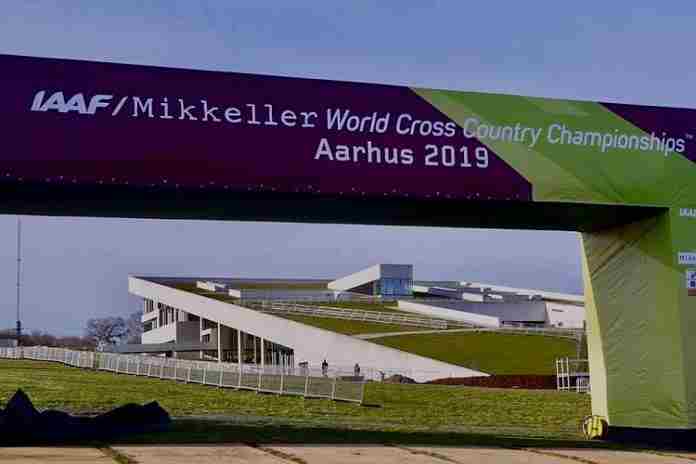 As had been expected, the International Olympic Committee’s Executive Board took no action concerning the International Boxing Association (AIBA) on the final day of its meetings in Lausanne (SUI) on Thursday.
As had been expected, the International Olympic Committee’s Executive Board took no action concerning the International Boxing Association (AIBA) on the final day of its meetings in Lausanne (SUI) on Thursday.
At the news briefing following, IOC spokesman Christian Klaue (GER) stated:
“We also heard today the intermediate report of the Inquiry Committee on the AIBA and I’m sure you were appreciate this is a legal case which is ongoing, so the IOC cannot comment on any of the results which they are there in the intermediate report, but what I can tell you is that we aim to have the final report ready for the next EB meeting on the 22nd of May of this year here in Lausanne. So, that is probably the news you were looking for. So it’s the 22nd of May when we expect to have the final report on the inquiry into AIBA.”
The report was delivered by the chair of the Inquiry Committee, Nenad Lalovic, who is also the head of United World Wrestling. That’s as much information as was shared.
But that was hardly the end of the story. The reaction from the AIBA, also headquartered in Lausanne, was quick and unhappy:
“While AIBA has provided not one, but four comprehensive reports over the course of the last year to the IOC EB for review, it is very surprising that the IOC are unable to provide a conclusive decision regarding boxing’s Olympic future at this time. Given that an additional report was submitted on February 20th 2019 and assurances were given that an official hearing and inquiry would be made before the IOC EB meeting in March 2019, AIBA is gravely concerned by the indifference shown towards the process and preparation of athletes for the Games.
“Since late 2017, there were claims of concern regarding AIBA and in response AIBA has undergone a complete transformation, working positively with a number of Olympic partners to rebuild all areas of the organisation. Improvements have been made on all fronts and the organization has clearly demonstrated its dedication to moving forward and improving its practices for the sake of the sport of Boxing and its athletes.”
Then there was a wild offer to expunge AIBA’s debts from a Russian official. As reported by the Associated Press, “A Russian official has offered to pay the International Boxing Association’s $16 million debt if the IOC keeps the sport in the 2020 Tokyo Olympics.”
The AP reported that Umar Kremlev, secretary-general of the Russian Boxing Federation, statd that “I am ready to close all the debts of AIBA in full, so long as our favorite sport remains in the Olympic program,” in a letter to the IOC, received during its Executive Board meeting.
AIBA’s auditor’s report, released earlier this week, showed that the organization is currently CHF 16.93 million in debt (~$16.99 million U.S.) and is dependent on its share of the IOC’s television revenues to stay afloat.
In its posted statement, AIBA Executive Director Tom Virgets (USA) commented:
“There is no more information left to give; it is now time to wrap up this inquiry and move forward. This further delay has a direct impact on our athletes, it is a complete disaster for boxers around the world who are being left in limbo without any support or access funding. We don’t understand why we can’t put the well-being of boxers ahead of anything else, it is time to move on – our boxers are waiting, our officials are waiting and our fans are waiting.”
The IOC will hardly be moved by such statements; it has a more basic decision to make. Does it want to have AIBA governing boxing in the future?
Can it trust AIBA to govern the sport properly? Will the refereeing and judging improve from the disastrous performance at many past Olympic Games and other events? What are its prospects for moving forward as a business entity?
The Russian offer – if valid – to wipe out AIBA’s debts can hardly give the IOC much confidence. AIBA’s own financial report shows that the IOC’s television revenue distribution accounted for 53% of all AIBA revenue in the “improved” six-month period of July-December 2018. Without it, AIBA would have shown a six-month loss of CHF 1.49 million, or about CHF 3 million annually, and the organization would be heading for liquidation.
Moreover, the increasingly important role of the Youth Olympic Games must be considered. Under Thomas Bach, this event has gone from a dubious youth-outreach program to a living laboratory for the IOC, at which new concepts are tested before being incorporated into the Olympic Games.
In Buenos Aires (ARG) last October, the boxing competition went on as usual, but without any involvement from AIBA. Bouts were held, winners were declared and the refereeing and judging was scrutinized by an IOC-contracted auditor. Have no doubt that this experience gives the IOC confidence that having AIBA conduct the 2020 Tokyo boxing tournament is not a necessity.
(IOC spokesman Mark Adams reconfirmed in a news conference earlier in the week that the IOC is still committed to having a boxing tournament in Tokyo, so that the boxers are not penalized for the faults of their international federation.)
Who will conduct the boxing in Tokyo? What will the IOC do about finding a new international federation for the sport? What will be the qualification procedures?
AIBA has made the point repeatedly that the qualification process is already late for 2020, but this is not so when one looks at the process for Rio in 2016. There, 85.2% of all qualifying places were decided from October 2015 through July of 2016, so there is still plenty of time. But there is uncertainty.
As the IOC has pointed out, AIBA has been the source of its own problems and no one else. AIBA has said it has reformed itself sufficiently enough to continue as the governor of Olympic boxing.
Should the IOC continue to do business with this organization, or find a new partner? That’s really the only question it has to ask itself in May, ahead of a possible decision by the IOC Session in June to revoke its recognition of AIBA for Tokyo. It’s going to be a close call, and the Russian offer to absolve AIBA’s long-term debt may smell as bad as having an alleged drug-trafficker as the elected AIBA President.
The question the IOC will find the most difficult to resolve – and to which other international federations will paying a lot of attention – is if AIBA is dismissed, then what? Stay tuned.
Rich Perelman
Editor


























